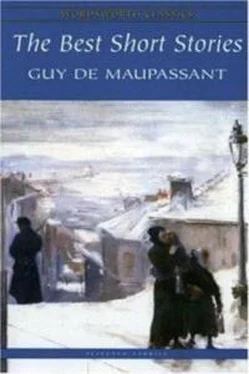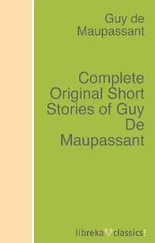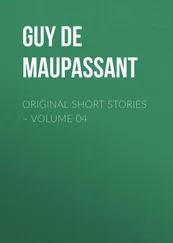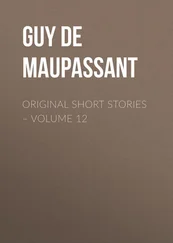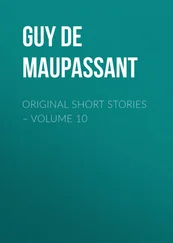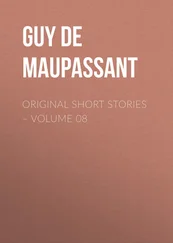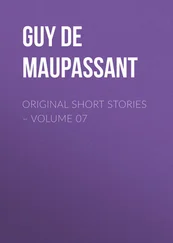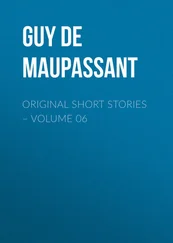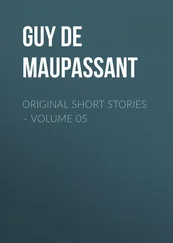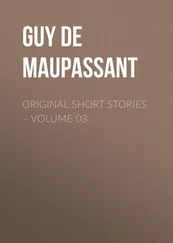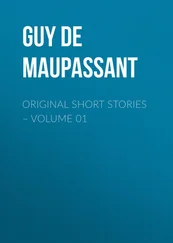"My mother, bewildered, kept repeating: 'Let's get out of here, let's get out!'
"Then, when he found the door locked, he exclaimed: 'If you do not open this door immediately, I will have you thrown into prison for blackmail and assault!'
"I had remained calm; I opened the door and saw them disappear in the darkness.
"Then I seemed to have been suddenly orphaned, deserted, pushed to the wall. I was seized with an overwhelming sadness, mingled with anger, hatred, disgust; my whole being seemed to rise up in revolt against the injustice, the meanness, the dishonor, the rejected love. I began to run, in order to overtake them along the Seine, which they had to follow in order to reach the station of Chaton.
"I soon caught up with them. It was now pitch dark. I was creeping up behind them softly, that they might not hear me. My mother was still crying. My father was saying: 'It's all your own fault. Why did you wish to see him? It was absurd in our position. We could have helped him from afar, without showing ourselves. Of what use are these dangerous visits, since we can't recognize him?'
"Then I rushed up to them, beseeching. I cried:
"'You see! You are my parents. You have already rejected me once; would you repulse me again?'
"Then, your honor, he struck me. I swear it on my honor, before the law and my country. He struck me, and as I seized him by the collar, he drew from his pocket a revolver.
"The blood rushed to my head, I no longer knew what I was doing, I had my compass in my pocket; I struck him with it as often as I could.
"Then she began to cry: 'Help! murder!' and to pull my beard. It seems that I killed her also. How do I know what I did then?
"Then, when I saw them both lying on the ground, without thinking, I threw them into the Seine.
"That's all. Now sentence me."
The prisoner sat down. After this revelation the case was carried over to the following session. It comes up very soon. If we were jurymen, what would we do with this parricide?
Dr. Bonnet, my old friend—one sometimes has friends older than one's self—had often invited me to spend some time with him at Riom, and, as I did not know Auvergne, I made up my mind to visit him in the summer of 1876.
I arrived by the morning train, and the first person I saw on the platform was the doctor. He was dressed in a gray suit, and wore a soft, black, wide–brimmed, high–crowned felt hat, narrow at the top like a chimney pot, a hat which hardly any one except an Auvergnat would wear, and which reminded one of a charcoal burner. Dressed like that, the doctor had the appearance of an old young man, with his spare body under his thin coat, and his large head covered with white hair.
He embraced me with that evident pleasure which country people feel when they meet long–expected friends, and, stretching out his arm, he said proudly:
"This is Auvergne!" I saw nothing before me except a range of mountains, whose summits, which resembled truncated cones, must have been extinct volcanoes.
Then, pointing to the name of the station, he said:
"Riom, the fatherland of magistrates, the pride of the magistracy, and which ought rather to be the fatherland of doctors."
"Why?" I, asked.
"Why?" he replied with a laugh. "If you transpose the letters, you have the Latin word 'mori', to die. That is the reason why I settled here, my young friend."
And, delighted at his own joke, he carried me off, rubbing his hands.
As soon as I had swallowed a cup of coffee, he made me go and see the town. I admired the druggist's house, and the other noted houses, which were all black, but as pretty as bric–a–brac, with their facades of sculptured stone. I admired the statue of the Virgin, the patroness of butchers, and he told me an amusing story about this, which I will relate some other time, and then Dr. Bonnet said to me:
"I must beg you to excuse me for a few minutes while I go and see a patient, and then I will take you to Chatel–Guyon, so as to show you the general aspect of the town, and all the mountain chain of the Puy–de–Dome before lunch. You can wait for me outside; I shall only go upstairs and come down immediately."
He left me outside one of those old, gloomy, silent, melancholy houses, which one sees in the provinces, and this one appeared to look particularly sinister, and I soon discovered the reason. All the large windows on the first floor were boarded half way up. The upper part of them alone could be opened, as if one had wished to prevent the people who were locked up in that huge stone box from looking into the street.
When the doctor came down again, I told him how it struck me, and he replied:
"You are quite right; the poor creature who is living there must never see what is going on outside. She is a madwoman, or rather an idiot, what you Normans would call a Niente. It is a miserable story, but a very singular pathological case at the same time. Shall I tell you?"
I begged him to do so, and he continued:
"Twenty years ago the owners of this house, who were my patients, had a daughter who was like all other girls, but I soon discovered that while her body became admirably developed, her intellect remained stationary.
"She began to walk very early, but she could not talk. At first I thought she was deaf, but I soon discovered that, although she heard perfectly, she did not understand anything that was said to her. Violent noises made her start and frightened her, without her understanding how they were caused.
"She grew up into a superb woman, but she was dumb, from an absolute want of intellect. I tried all means to introduce a gleam of intelligence into her brain, but nothing succeeded. I thought I noticed that she knew her nurse, though as soon as she was weaned, she failed to recognize her mother. She could never pronounce that word which is the first that children utter and the last which soldiers murmur when they are dying on the field of battle. She sometimes tried to talk, but she produced nothing but incoherent sounds.
"When the weather was fine, she laughed continually, and emitted low cries which might be compared to the twittering of birds; when it rained she cried and moaned in a mournful, terrifying manner, which sounded like the howling of a dog before a death occurs in a house.
"She was fond of rolling on the grass, as young animals do, and of running about madly, and she would clap her hands every morning, when the sun shone into her room, and would insist, by signs, on being dressed as quickly as possible, so that she might get out.
"She did not appear to distinguish between people, between her mother and her nurse, or between her father and me, or between the coachman and the cook. I particularly liked her parents, who were very unhappy on her account, and went to see them nearly every day. I dined with them quite frequently, which enabled me to remark that Bertha (they had called her Bertha) seemed to recognize the various dishes, and to prefer some to others. At that time she was twelve years old, but as fully formed in figure as a girl of eighteen, and taller than I was. Then the idea struck me of developing her greediness, and by this means of cultivating some slight power of discrimination in her mind, and to force her, by the diversity of flavors, if not to reason, at any rate to arrive at instinctive distinctions, which would of themselves constitute a kind of process that was necessary to thought. Later on, by appealing to her passions, and by carefully making use of those which could serve our purpose, we might hope to obtain a kind of reaction on her intellect, and by degrees increase the unconscious action of her brain.
"One day I put two plates before her, one of soup, and the other of very sweet vanilla cream. I made her taste each of them successively, and then I let her choose for herself, and she ate the plate of cream. In a short time I made her very greedy, so greedy that it appeared as if the only idea she had in her head was the desire for eating. She perfectly recognized the various dishes, and stretched out her hands toward those that she liked, and took hold of them eagerly, and she used to cry when they were taken from her. Then I thought I would try and teach her to come to the dining–room when the dinner bell rang. It took a long time, but I succeeded in the end. In her vacant intellect a vague correlation was established between sound and taste, a correspondence between the two senses, an appeal from one to the other, and consequently a sort of connection of ideas—if one can call that kind of instinctive hyphen between two organic functions an idea—and so I carried my experiments further, and taught her, with much difficulty, to recognize meal times by the clock.
Читать дальше
